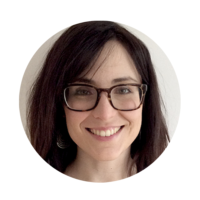For this session we are pleased to welcome Dr. Francesca Solmi, UCL, and also Dr. Lisa Dinkler, Karolinska Institutet to discuss her paper on Autism and Eating Disorders.
We will be looking at Dr. Francesca Solmi’s JCPP paper ‘Trajectories of autistic social traits in childhood and adolescence and disordered eating behaviours at age 14 years: A UK general population cohort study’. doi.org/10.1111/jcpp.13255
Plus, also discussing Dr. Lisa Dinkler’s JCPP paper on ‘Anorexia nervosa and autism: a prospective twin cohort study’. doi.org/10.1111/jcpp.13265
Sign up to this free event at this link or on the Book Now button at the top of the screen and complete the form that follows. You’ll then receive an email confirmation and a link to the webinar, plus we’ll send you a calendar reminder nearer the time. ACAMH Members attending will be eligible for an electronic CPD certificate. Non-members can opt to receive an electronic CPD certificate for just £5, simply select this option at point of booking.
About the session
A panel, comprising paper author Dr. Francesca Solmi, University College London, Dr. Lisa Dinkler, Karolinska Institutet, and a lived experience perspective from the McPin Foundation, will discuss the research and its implications with information scientist Douglas Badenoch. This discussion will be facilitated by Andre Tomlin (@Mental_Elf).
To get the most from the session we suggest reading the following resources;
- Mental Elf blog
- Dr. Francesca Solmi paper doi.org/10.1111/jcpp.13255
- Dr. Lisa Dinkler’s paper doi.org/10.1111/jcpp.13265, a Research Digest of the paper, and a video abstract from Dr. Lisa Dinkler’s paper (below) or on the ACAMH YouTube Channel
- Food Sensitivities and Proclivities – Podcast Episode 6 ‘Autism, a parents guide’ with Dr. Vicki Ford
- ACAMH Topic Guides on Autism, and on Eating Disorders
About #CAMHScampfire
ACAMH’s vision is to be ‘Sharing best evidence, improving practice’, to this end in December 2020 we launched ‘CAMHS around the Campfire’, a free monthly virtual journal club, run in conjunction with André Tomlin. We use #CAMHScampfire on Twitter to amplify the discussion.
Each 1-hour meeting features a new piece of research, which we discuss in an informal journal club session. The focus is on critical appraisal of the research and implications for practice. Primarily targeted at CAMHS practitioners, and researchers, ‘CAMHS around the Campfire’ will be publicly accessible, free to attend, and relevant to a wider audience.
Previous sessions are listed in our Talks & Lectures section.
About the panel
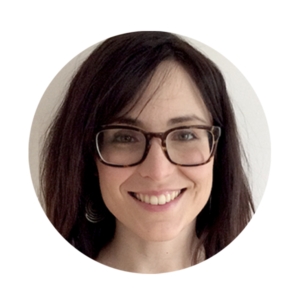
My research broadly focuses on studying the risk factors for the development of eating disorders across the life-span. As part of my Sir Henry Wellcome Fellowship I am studying whether inflammation – conceptualisd as exposure to prenatal and childhood infections, high genetic risk, autoimmunity – increases a person’s risk of developing eating disorders. To do this, I use large general population datasets, including both biological and environmental data, and causal inference methods. I am also interested in studying inequalities in access to services and evaluating the effectiveness of current treatments for eating disorders using electronic medical records.
I teach on the following MSc programmes offered by UCL MSc in Mental Health Sciences (UCL Division of Psychiatry): Core research methods module; Epidemiology module, Statistics module (as a teaching assistant) MSc in Child and Adolescent Mental Health (UCL, Institute of Child Health); Epidemiological research methods in child & adolescent mental health. I welcome inquiries about PhD and MSc projects. Bio and image via UCL website.
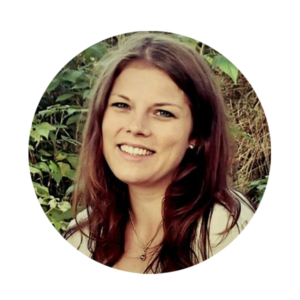
Dr. Lisa Dinkler graduated from the PhD program at the University of Gothenburg in December 2020 and is now a postdoc at Karolinska Institutet. Her PhD project investigated the development and course of eating disorders in association to neurodevelopmental disorders (NDDs), and the mechanisms underlying the overlap of eating disorders and NDDs. Applying twin methodology Lisa studies the extent to which genetic and environmental factors are shared between eating disorders and NDDs. In a large birth cohort of Japanese preschool children she investigates the prevalence and course of a wide range of childhood eating problems, including Avoidant Restrictive Food Intake Disorder (ARFID), and their association with NDDs. Lisa’s research also explores neuropsychological factors underlying the social difficulties common to eating disorders and NDDs with the help of eye-tracking methodology.
Professor Helen Minnis and Lisa Dinkler discuss their paper “Maltreatment-associated neurodevelopmental disorders: a co-twin control analysis” published in the Journal of Child Psychology and Psychiatry.
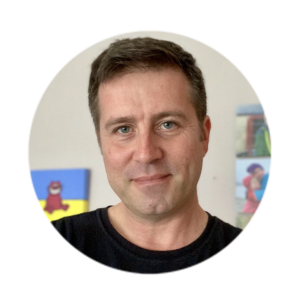
Andre Tomlin
André Tomlin is an Information Scientist with 20 years experience working in evidence-based healthcare. He’s worked in the NHS, for Oxford University and since 2002 as Managing Director of Minervation Ltd, a consultancy company who do clever digital stuff for charities, universities and the public sector. Most recently André has been the driving force behind the Mental Elf and the National Elf Service. The Mental Elf is a blogging platform that presents expert summaries of the latest reliable research and disseminates this evidence across social media. They have published thousands of blogs over the last 10 years, written by experts and discussed by patients, practitioners and researchers. This innovative digital platform helps professionals keep up to date with simple, clear and engaging summaries of evidence-based research. André is a Trustee at the Centre for Mental Health and an Honorary Research Fellow at University College London Division of Psychiatry. He lives in Bristol, surrounded by dogs, elflings and lots of woodland!
Follow on Twitter @Mental_Elf
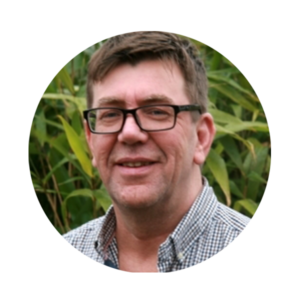
I am an information scientist with an interest in making knowledge from systematic research more accessible to people who need it. This means you. I’ve been attempting this in the area of Evidence-Based Health Care since 1995. So far the results have been mixed. For some reason we expected busy clinicians to search databases and appraise papers instead of seeing patients. We also expected publishers to make the research freely available to the people who paid for it. Ha! Hence The National Elf service.

